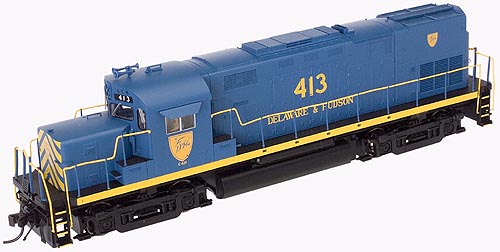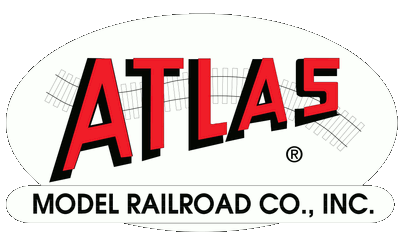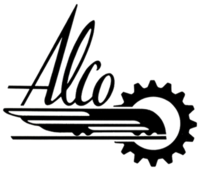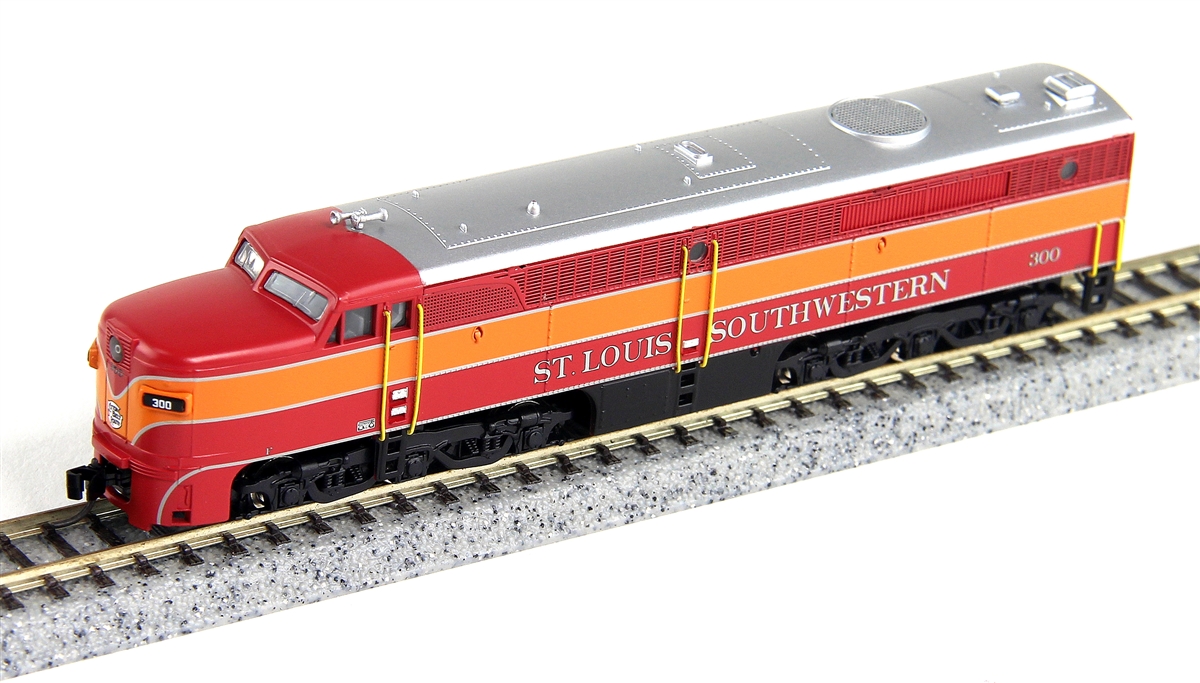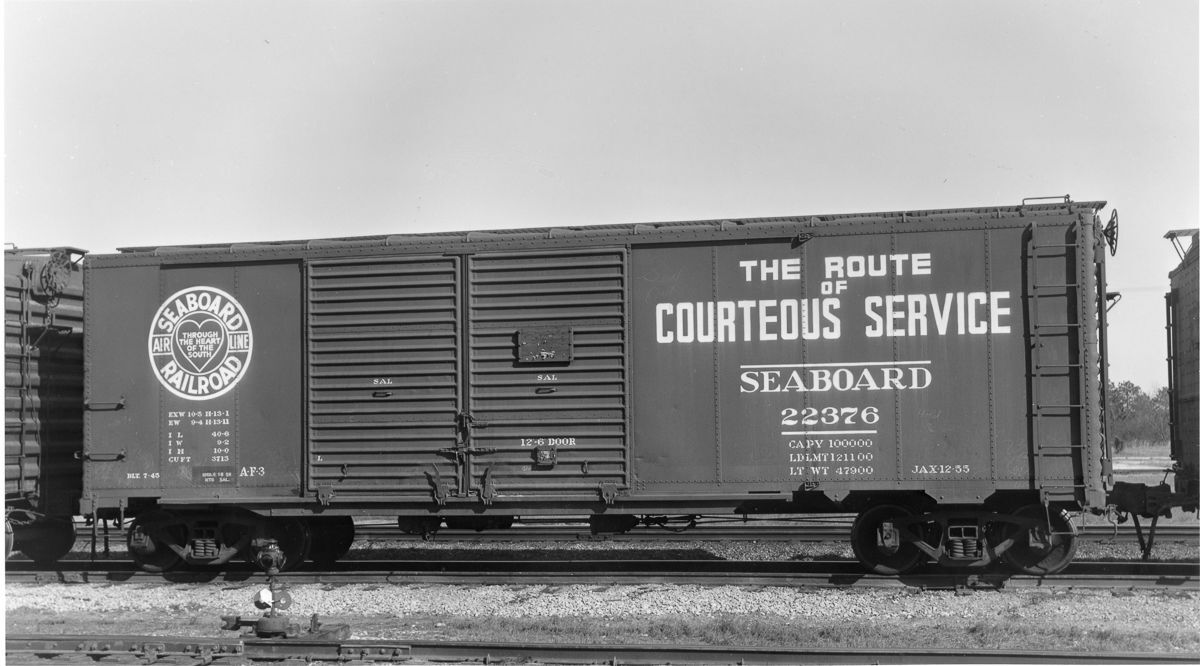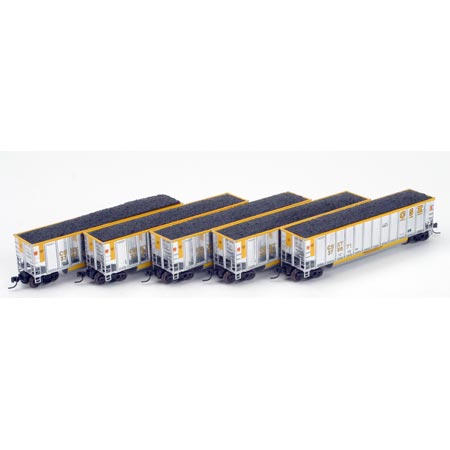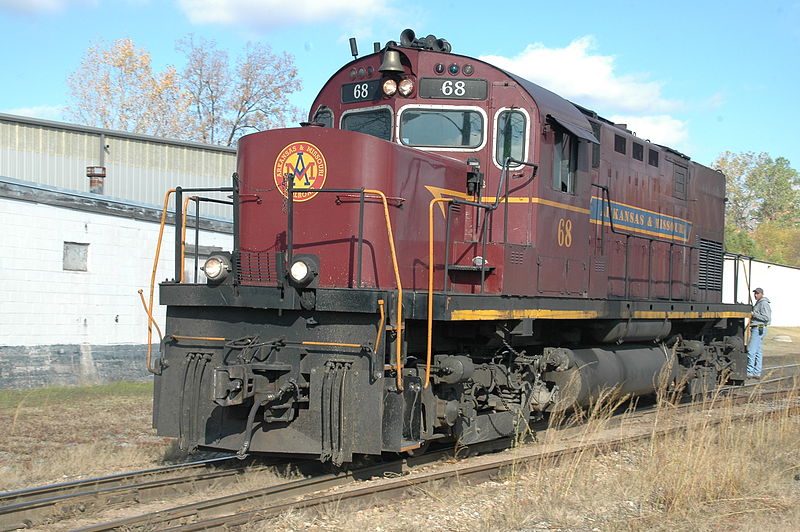Body Style Information: With etched metal radiator walkways, fine-scale handrails, see-through step detail on sills, and painted crew members, the Atlas Model Railroad Alco Century 420 diesel locomotives have an array of separately-applied scale detail parts like cab sun shades, coupler cut levers, drop steps, handrails, metal grab irons, multiple-unit hoses, train line hoses, and windshield wipers.
For optimum performance at all speeds, the models are driven by five-pole skewed armature motors, with dual flywheels.
The C420s have directional lighting and golden-white LEDs.
Decoder-Ready, Atlas Master Series Silver models are fitted with an NMRA 8-pin plug for DCC use.
With authentic sounds, Atlas Master Series Gold models are fitted with dual-mode decoders that run on DCC, or traditional DC equipped layouts.
For optimum performance at all speeds, the models are driven by five-pole skewed armature motors, with dual flywheels.
The C420s have directional lighting and golden-white LEDs.
Decoder-Ready, Atlas Master Series Silver models are fitted with an NMRA 8-pin plug for DCC use.
With authentic sounds, Atlas Master Series Gold models are fitted with dual-mode decoders that run on DCC, or traditional DC equipped layouts.
Prototype Information: ALCo built a total of 131 Century 420 locomotives between 1963 and 1969, when the builder ceased all new locomotive production. Powered by a 12-cylinder, turbocharged, 2,000-hp 251-series prime mover, the C420’s direct competitor in 1963 was the EMD GP18. In fact, EMD did not offer a 12-cylinder, 2,000-hp prime mover until the GP39 model was produced in 1969. The shorter 12-cylinder engine block allowed the C420 to have its distinctive set-back cab and extended short hood.
The first road to purchase the C420 was the Lehigh & Hudson River, with its first two units built in 1963. The largest fleet was purchased by the Long Island Railroad, with 30 units built between 1963 and 1968. All were equipped with a high short hood which housed a steam generator for passenger service. Over time, the largest fleet of C420s was amassed by the Louisville & Nashville. While only 26 units were purchased new, their total fleet grew to well over 60 units through mergers and acquisitions. The C420 can still be found in daily service today in the US. Currently the largest fleet of C420s is operated by the Arkansas & Missouri Railroad.
The first road to purchase the C420 was the Lehigh & Hudson River, with its first two units built in 1963. The largest fleet was purchased by the Long Island Railroad, with 30 units built between 1963 and 1968. All were equipped with a high short hood which housed a steam generator for passenger service. Over time, the largest fleet of C420s was amassed by the Louisville & Nashville. While only 26 units were purchased new, their total fleet grew to well over 60 units through mergers and acquisitions. The C420 can still be found in daily service today in the US. Currently the largest fleet of C420s is operated by the Arkansas & Missouri Railroad.
Road/Company Information: 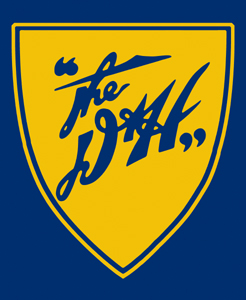 The Delaware and Hudson Canal Company would found the Delaware and Hudson Railway to support its mission of getting fuel to the timber denuded cities of the northeast when it was discovered that 'rock coal' or Anthracite could be burned successfully. In time the railway eclipsed the parent company, and America's brief canal age would be ended by the availability of more powerful traction locomotives, so today the canal is little known. Today the Delaware and Hudson Railway (reporting mark DH) is again a subsidiary railroad that operates in the northeastern United States. Since 1991 it was owned and operated by the Canadian Pacific Railway under the rail subsidiary Soo Line Corporation also controls the Soo Line Railroad, Canadian Pacific Railway is owned by Canadian Pacific Railway Limited.
The Delaware and Hudson Canal Company would found the Delaware and Hudson Railway to support its mission of getting fuel to the timber denuded cities of the northeast when it was discovered that 'rock coal' or Anthracite could be burned successfully. In time the railway eclipsed the parent company, and America's brief canal age would be ended by the availability of more powerful traction locomotives, so today the canal is little known. Today the Delaware and Hudson Railway (reporting mark DH) is again a subsidiary railroad that operates in the northeastern United States. Since 1991 it was owned and operated by the Canadian Pacific Railway under the rail subsidiary Soo Line Corporation also controls the Soo Line Railroad, Canadian Pacific Railway is owned by Canadian Pacific Railway Limited.
The name itself originates from the 1823 New York state corporation charter listing the unusual name of "The President, Managers and Company of the Delaware & Hudson Canal Co." authorizing an establishment of "water communication" between the Delaware River and the Hudson River.
Nicknamed "The Bridge Line to New England and Canada," the D&H helped connect New York with Montreal, Quebec and New England. It called itself "North America's oldest continually operated transportation company." Between 1968 & 1984, the D&H was owned by Norfolk & Western. N&W sold it to Guilford Transportation, who cast it into bankruptcy in 1988 and in 1991, the D&H was purchased by Canadian Pacific Railway (CP).
On September 19, 2015, Norfolk Southern Railway assumed control and began operations of their recently acquired Delaware & Hudson "South Line", the 282 miles from Schenectady, New York to Sunbury, Pennsylvania from CP. The Delaware & Hudson "South Line" is a rail route that now consists of three rail lines, the Sunbury Line, the Freight Line, and the Voorhesville Running Track; the Sunbury Line absorbed the original route of the Delaware, Lackawanna and Western Railroad main line which contains the Nicholson Cutoff during that rail line's history.

The name itself originates from the 1823 New York state corporation charter listing the unusual name of "The President, Managers and Company of the Delaware & Hudson Canal Co." authorizing an establishment of "water communication" between the Delaware River and the Hudson River.
Nicknamed "The Bridge Line to New England and Canada," the D&H helped connect New York with Montreal, Quebec and New England. It called itself "North America's oldest continually operated transportation company." Between 1968 & 1984, the D&H was owned by Norfolk & Western. N&W sold it to Guilford Transportation, who cast it into bankruptcy in 1988 and in 1991, the D&H was purchased by Canadian Pacific Railway (CP).
On September 19, 2015, Norfolk Southern Railway assumed control and began operations of their recently acquired Delaware & Hudson "South Line", the 282 miles from Schenectady, New York to Sunbury, Pennsylvania from CP. The Delaware & Hudson "South Line" is a rail route that now consists of three rail lines, the Sunbury Line, the Freight Line, and the Voorhesville Running Track; the Sunbury Line absorbed the original route of the Delaware, Lackawanna and Western Railroad main line which contains the Nicholson Cutoff during that rail line's history.
Brand/Importer Information: In 1924 Stephan Schaffan, Sr. founded the Atlas Tool Company in Newark, New Jersey. In 1933 his son, Stephan Schaffan, Jr., came to work for his father at the age of sixteen. Steve Jr. built model airplanes as a hobby and frequented a local hobby shop. Being an enterprising young man, he would often ask the owner if there was anything he could do to earn some extra spending money. Tired of listening to his requests, the hobby-store owner threw some model railroad track parts his way and said, "Here, see if you can improve on this".
Atlas has made a ton of wonderful products throughout the years and we often get questions one whether we have run a certain road name on a particular model. It should be noted that Atlas locomotives and rolling stock are greatly appreciated for their superior operating and running characteristics. Atlas products are also well known for their outstanding collectability not only due to their superior prototypical workmanship, details and decoration, but because there are relatively so few of them made. Each and every production run has been carefully built to market demand, meaning almost every piece in any given run is sold out by Atlas on arrival or shortly thereafter, thus creating a built in collectors market.
Atlas has made a ton of wonderful products throughout the years and we often get questions one whether we have run a certain road name on a particular model. It should be noted that Atlas locomotives and rolling stock are greatly appreciated for their superior operating and running characteristics. Atlas products are also well known for their outstanding collectability not only due to their superior prototypical workmanship, details and decoration, but because there are relatively so few of them made. Each and every production run has been carefully built to market demand, meaning almost every piece in any given run is sold out by Atlas on arrival or shortly thereafter, thus creating a built in collectors market.
Item created by: nscalemodeler160 on 2016-08-01 10:30:04. Last edited by gdm on 2019-12-04 15:50:40
If you see errors or missing data in this entry, please feel free to log in and edit it. Anyone with a Gmail account can log in instantly.
If you see errors or missing data in this entry, please feel free to log in and edit it. Anyone with a Gmail account can log in instantly.


